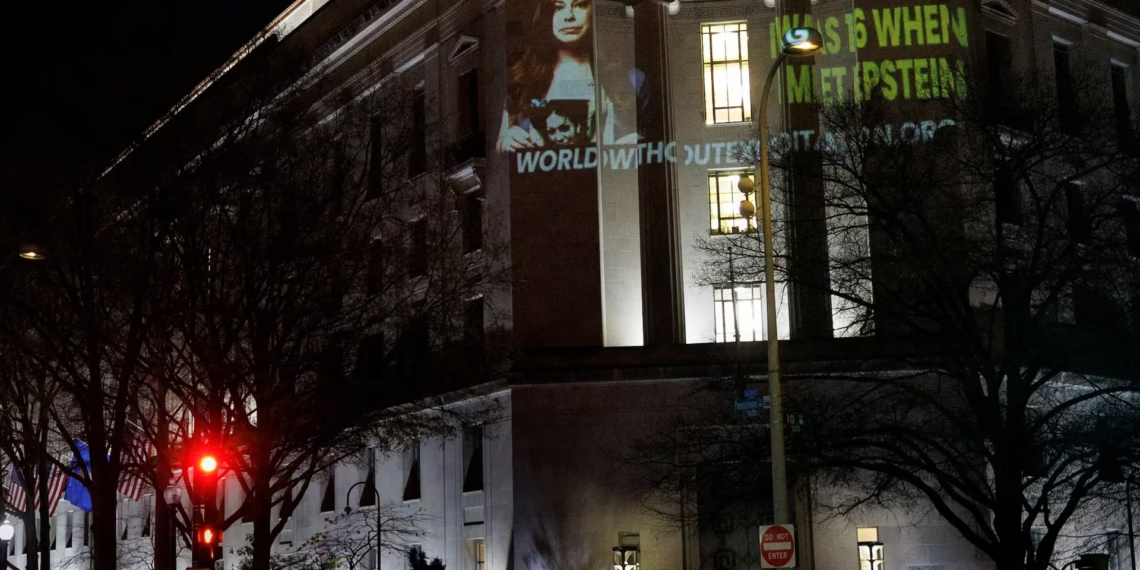The US House of Representatives is expected to approve a measure that would compel the Justice Department to release the “Epstein files”: documents that were amassed during investigations into late sex offender Jeffrey Epstein.
House Speaker Mike Johnson said he expected a “large vote tally” when the measure came to the floor of the Republican-led chamber on Tuesday, after President Donald Trump called on Republican lawmakers to approve it.
But the files may not be released soon, and it is unclear if some will be held back. After the House, the measure must also be approved by the Senate.
Survivors of Epstein’s abuse are also due to appear on Capitol Hill on Tuesday in support of the measure.
On Monday evening, the group World Without Exploitation projected images of some survivors onto buildings throughout Washington, all less than a mile from Capitol Hill, with the message: “Congress, release all of the files.”
Members of both parties who are calling for the release of the files believe that the information could implicate powerful figures in Epstein’s crimes.
At various stages over the years, other Epstein-related materials have been put into the public domain.
Last week, thousands of documents belonging to Epstein’s estate were released by the House Oversight Committee, mostly emails.
These mentions Trump and other high-profile individuals who were in Epstein’s orbit, without implying any wrongdoing by those individuals.
Read Also:
- US to sell F-35 jets to Saudi Arabia, Trump says ahead of crown prince’s visit
- Nnamdi Kanu’s defence team raises alarm over court’s refusal to hear motions challenging jurisdiction
- US to designate Venezuela’s Cartel de los Soles as a terrorist group
Trump has maintained he did not commit any wrongdoing and that he ended his friendship with Epstein long before Epstein was first arrested.
On the campaign trail last year, Trump supported the release of the files, but moved away from that position once in office, provoking frustration from his supporters.
The Justice Department put out a limited batch of documents in February and later said there would be no more releases.
Lawmakers from both parties then began working on a resolution to force the release of all the files.
Last week, at the end of the 43-day federal shutdown, Johnson swore in the newest House member, who immediately signed onto the petition to consider the resolution, pushing it over the threshold needed for a vote.
Trump, who had put pressure on fellow Republicans to reject the resolution, performed a U-turn on Sunday by saying he would support it after all.
Speaking to reporters the following evening, he confirmed that he would also sign the resolution into law, assuming it met the approval of both chambers of Congress.
“Sure, I would,” he said. “Let the Senate look at it, let anybody look at it. But don’t talk about it too much.”
That was because, Trump said, the issue was taking attention away from his administration’s accomplishments.
“We’ve done a great job and I hate to see that deflect from the great job we’ve done,” he said.
Representative Robert Garcia, the top Democrat on the House Oversight Committee that has been investigating the Epstein files, said Trump did not need to wait for the resolution to pass the House and then the Senate.
“Let’s be crystal clear: Trump has the power to release all the files today,” he said in a statement on Monday in which he accused Trump of wanting “to deflect and slow down our investigation.”






